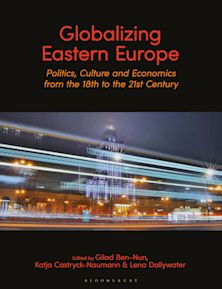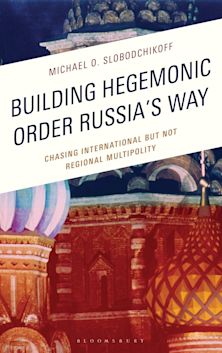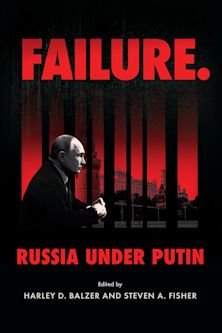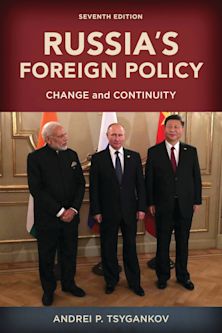Putin's Propaganda Machine
Soft Power and Russian Foreign Policy
- Textbook
Putin's Propaganda Machine
Soft Power and Russian Foreign Policy
- Textbook
This product is usually dispatched within 1 week
- Delivery and returns info
-
Free US delivery on orders $35 or over
Description
Putin's Propaganda Machine examines Russia’s “information war,” one of the most striking features of its intervention in Ukraine. Marcel H. Van Herpen argues that the Kremlin’s propaganda offensive is a carefully prepared strategy, implemented and tested over the last decade. Initially intended as a tool to enhance Russia’s soft power, it quickly developed into one of the main instruments of Russia’s new imperialism, reminiscent of the height of the Cold War. The author describes a multifaceted strategy that makes use of diverse instruments, including mimicking Western public diplomacy initiatives, hiring Western public-relations firms, setting up front organizations, buying Western media outlets, financing political parties, organizing a worldwide propaganda offensive through the Kremlin’s cable network RT, and publishing paid supplements in leading Western newspapers. In this information war, key roles are assigned to the Russian diaspora and the Russian Orthodox Church, the latter focused on spreading so-called traditional values and attacking universal human rights and Western democracy in international fora. Van Herpen demonstrates that the Kremlin’s propaganda machine not only plays a central role in its “hybrid war” in Ukraine, but also has broader international objectives, targeting in particular Europe’s two leading countries—France and Germany—with the goal of forming a geopolitical triangle, consisting of a Moscow-Berlin-Paris axis, intended to roll back the influence of NATO and the United States in Europe. Drawing on years of research, Van Herpen shows how the Kremlin has built an array of soft power instruments and transformed them into effective weapons in a new information war with the West.
Table of Contents
Glossary and Abbreviations
Introduction
Part I: The Search for Russian "Soft Power"
Chapter 1: Russian Soft Power: Hard Power in a Velvet Glove
Chapter 2: The Three Components of the Russian Soft Power Offensive: Mimesis, Roll Back, and Invention
Chapter 3: "Reputation Laundering": How Western PR Firms Help Improve the Kremlin’s Image
Chapter 4: The Propaganda Offensive in the Western Media
–Part I: The Creation of Russia Today (RT), Russia beyond the Headlines, and Rossiya Segodnya
Chapter 5: The Propaganda Offensive in the Western Media
–Part II: Buying Western Newspapers, The Increasing Grip on the Social Media, The "Kremlin School of Bloggers"
Chapter 6: Financing Politicians and Political Parties
Chapter 7: Spies and Spooks as Soft Power Instruments
Part II: Creating a New Missionary Ideology: The Role of the Russian Orthodox Church
Chapter 8: The Russian Orthodox Church: The Kremlin’s Secret "Soft Power" Weapon?
Chapter 9:Attacking Universal Human Rights in the International Forums
Chapter 10: A Global Church for the Kremlin?
Chapter 11: The Russian Orthodox Church: A Pillar of Russian Neo-Imperialism?
Part III: Undermining Atlanticism: Building a "Strategic Triangle" Moscow-Berlin-Paris
Chapter 12: An Emerging Moscow-Berlin Axis?
Chapter 13: Germany’s Kremlin-Friendly Political Class
Chapter 14: Russian-German "Verflechtung":Creating Mutual Economic Interdependence
Chapter 15: The Kremlin’s Conquest of France
Chapter 16: Conclusions
Bibliography
About the Author
Product details
| Published | Oct 01 2015 |
|---|---|
| Format | Hardback |
| Edition | 1st |
| Extent | 336 |
| ISBN | 9781442253605 |
| Imprint | Rowman & Littlefield |
| Dimensions | 9 x 6 inches |
| Publisher | Bloomsbury Publishing |
Reviews

ONLINE RESOURCES
Bloomsbury Collections
This book is available on Bloomsbury Collections where your library has access.



































